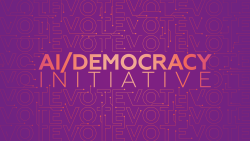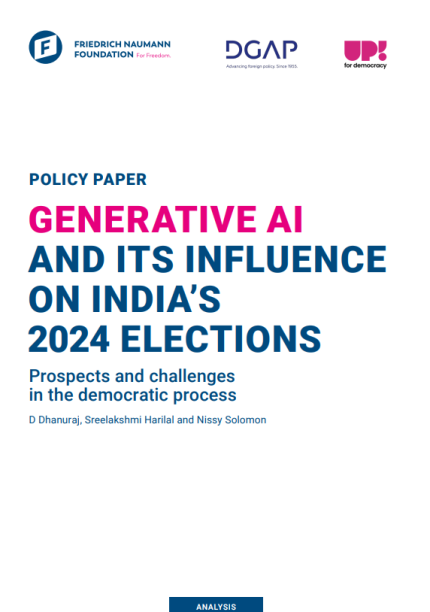The paper highlights AI‘s dual role in enhancing voter engagement while also posing ethical risks. It raises concerns about voter privacy, the spread of false information, and the decline of informed voting. The paper emphasizes the need for regulatory frameworks to ensure responsible AI use, protect democratic integrity, and prevent misuse. It suggests that current AI technology will likely be used in similar ways in future elections. The study underscores the importance of a collaborative approach involving political parties, regulatory bodies, technology platforms, and voters to establish ethical standards for AI use in elections, ensuring that technological advancements support rather than undermine democratic principles.
Read the full Policy Paper here.
This publication is part of the AI/Democracy Initiative, a collaborative effort by the Friedrich Naumann Foundation and the German Council on Foreign Relations to explore the impact of artificial intelligence on democratic processes and electoral integrity. Visit the project website here.




